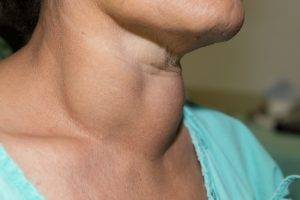The Achilles tendon is one of the body’s largest tendons. It is a strong fibrous cord that connects the muscles of the back of your calf to your heel bone. The Achilles tendon is important in our daily movements, such as tiptoeing and running. While tendon tissues are strong, they are inflexible. If the Achilles tendon is overstretched, it can lead to pain and injury.
PSA: Medical Channel Asia (MCA) is now on Telegram! Join us here https://t.me/MedicalChannelAsia for daily reads and the latest updates at your fingertips!
Main causes of pain
Achilles tendinitis
If your Achilles tendon hurts when you move, then you may be suffering from Achilles tendon inflammation. This is also known as Achilles tendinitis, or inflammation of the tendon due to wear and tear, or overuse.
Achilles tendinitis commonly occurs in athletes, such as runners who suddenly increase the intensity or duration of their runs. Nonetheless, it can also occur in non-athletes. As the Achilles tendon weakens with age, Achilles tendinitis is more common in the older population as well.
Symptoms of Achilles tendinitis include mild to severe ache of the tendon depending on activity; and tenderness or stiffness, especially in the morning. This stiffness improves with mild activity.
Achilles tendinitis usually responds to self-care measures. This includes taking over-the-counter anti-inflammatory medication to reduce the pain and swelling; and implementing RICE (Rest, Ice, Compress, Elevate) to alleviate the discomfort. Doing prescribed stretching and strengthening exercises can also help to strengthen the Achilles tendon and supporting structures.
If the Achilles tendinitis progresses or if it is not well-managed, it can lead to more severe conditions such as an Achilles tendon rupture or Achilles tendinosis.
Tear or rupture
Achilles tendon ruptures often are caused by a sudden increase in the stress on your Achilles tendon. This can be while playing sports with sudden start, stop, and pivoting motions. Even accidents such as falling from a height, or stepping into a hole may stress the Achilles tendon and cause a rupture.
When the Achilles tendon ruptures, there may be a pop, followed by a sharp pain at the back of the ankle and lower leg. Many report the sensation of “having been kicked in the calf”. There may be difficulty walking after the injury event.
Treatment for Achilles tendon rupture depends on age, activity level, and the severity of the injury. Non-surgical treatment may be considered for a minor rupture, or for patients who are less active. The torn tendon is allowed to heal slowly while placed in a cast or walking boot. However, it is associated with a higher chance of re-rupture. Otherwise, surgery can also be done to repair the torn tendon, depending on the condition.
Achilles tendinosis
When Achilles pain and inflammation happen chronically, there can be degeneration of the tendon. The tendon structure is weakened as the fibers that make up the tendon break down. The tendon may also become thickened due to the build-up of scar tissue. Unlike Achilles tendinitis which is acute and inflammatory in nature, Achilles tendinosis is a chronic and degenerative condition.
As such, anti-inflammatory medication and application of ice may not work as well for Achilles tendinosis, due to the lack of inflammation in this condition. Non-invasive treatment options for Achilles tendinosis include activity modification, orthotics, heel lifts, strengthening exercises, and extracorporeal shock wave therapy (ESWT) among others. Surgical treatment involving the removal of abnormal scar tissues can also be an option.
–
If you develop any symptoms such as severe and sudden pain at the back of the leg or trouble bearing weight on the leg, it is important to address it by seeking immediate medical attention.















